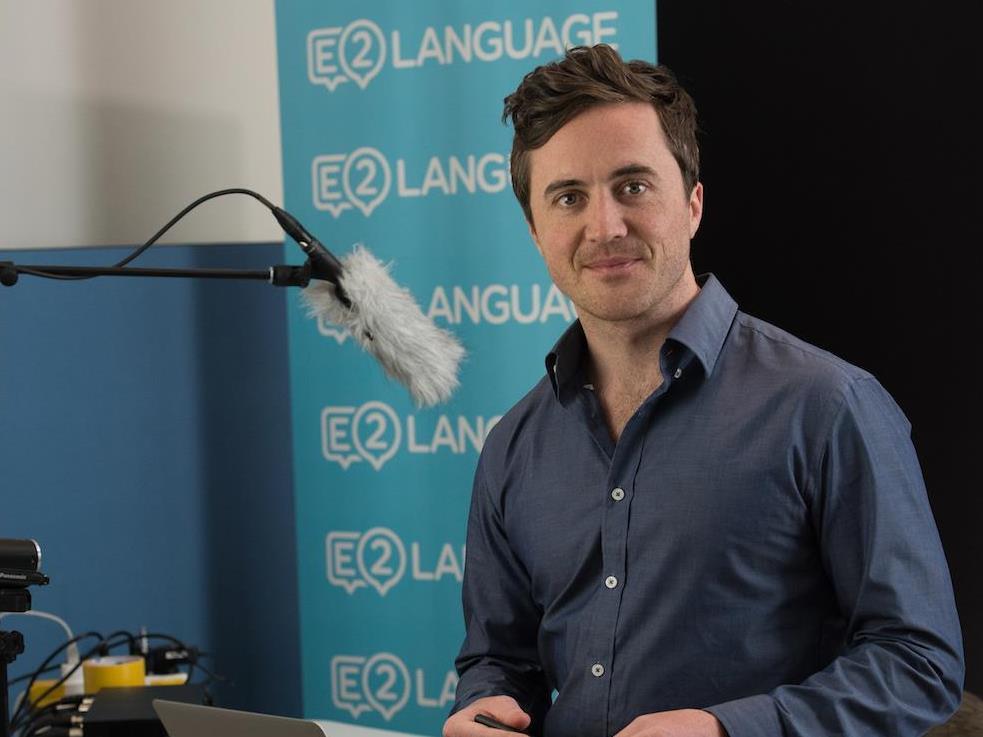Image: Jarrad Merlo, Co-Founder of E2 Language, supplied.
The workforce has changed dramatically over the last century and continues to change at light speed. Juggling people, politics and projects across time zones and cultures, arts professionals are expected to cultivate creative problem-solving skills and constantly adapt to succeed.
‘It is the adaptability and creativity cultivated by studying an arts degree that prepares people for a successful career across a range of different areas,’ says Timothy Lynch, Associate Professor and Director of the Graduate School of Humanities and Social Sciences, University of Melbourne.
‘What the arts is particularly good at — although it’s not exclusive to the arts — is developing intellectual self-confidence in students. It makes them quite adaptable and this can broaden their career prospects.’
We spoke to arts professionals to discover their top tips to succeed.
Trust your instincts
Figuring out your career path in the arts can be difficult and many of us change careers multiple times as we learn along the way.
Kate Stephens, Company Manager at Victorian Opera, recently completed a Master of Arts and Cultural Management at the University of Melbourne. However, a career in arts management didn’t reveal itself until later in her studies. She says the key to figuring it all out was trust.
‘Trust your instincts; there is a lot of advice out there and it can lead to information overload. Trust your instincts and follow what you feel is inspiring and interesting, and you’ll find out where you need to be,’ she says.
‘I started out doing a double degree in Arts/Music and I wasn’t exactly sure what the degrees meant for me. I was studying instrumental music and I didn’t think I wanted to be an instrumentalist, but I knew I wanted to be involved in music and live performance in some way. I knew it had to be in that world. Trusting that was really valuable, even though I went about it in a slightly roundabout way and ended up in arts management.’
Build strong relationships
Success comes from building strong relationships with partners, says Bronwyn Tilbury, who developed strong relationships throughout her career.
As Senior Program Manager at the International Women’s Development Agency she heads up the Women’s Action for Voice and Empowerment (WAVE) program, which aims to put more women in positions of power across the Asia Pacific and increase women’s roles in the decision making in their communities.
She works in situations that require a high degree of cultural knowledge and sensitivity. But how can people from outside these specific local communities do that? Strong relationships are critical, she says.
‘You can be self-reflective and try to include critical self-reflection in your work, but sometimes you don’t know what you don’t know. You rely on people to let you know when you’ve put your foot in it and made a mistake because you don’t always know the different power dynamics in place and various histories,’ she explains.
At the end of the day, you have to trust the relationships you’ve built and trust that people will tell you if you’ve done something culturally insensitive that could jeopardise what you’re trying to do so you can change that behavior.”
Data driven decision making
We all need to make decisions in our day-to-day work life, but how do we know which is the right one? For Jarrad Merlo, Co-founder of the start-up E2Language, the answer is in the data.
After completing a Master of Applied Linguistics, he conceptualised and launch his now burgeoning online learning platform for English language that today serves 100,000 students.
The statistics and research methods subjects were extremely eye-opening not just for linguistics or understanding language, but for providing the tools for lateral thinking which has been extremely helpful. I now work a lot with analytics to make decisions about consumer behavior, and we can base this on thinking statistically, not just using gut instinct,’ said Merlo.
Merlo said research methods is all about theories of knowledge.
‘How do we know what a consumer wants? What it comes down to is good decision making. It gave me the tools to make better decisions.’
Learn more about graduate arts programs at the University of Melbourne.





